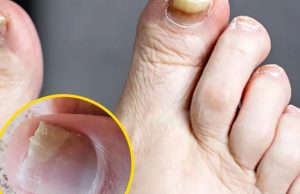
A well-maintained washing machine can remain operational for over ten years, but its lifespan may be reduced by misuse and accidents. Practices such as overloading, using incorrect cleaning agents, and neglectfully leaving sharp metal items like pins, hangers, and hooks in the cycle can contribute to a shorter lifespan.
When it becomes necessary to replace the machine, there are various indicators to look out for. By following these useful tips, you can potentially enhance its performance and extend its longevity.
Average Lifespan of a Washing Machine
The lifespan of washing machines typically ranges from 7 to 15 years, contingent on the level of maintenance. If there are issues with water or power lines, or if the machine itself is defective, it may fall toward the lower end of that time frame.
The conventional style of washing machines, known as top-loaders, is a classic design that can endure for up to 15 years. Nevertheless, they are susceptible to malfunctions, particularly when overloaded.
“Front-load machines typically last a bit longer than top-loaders. However, front-load machines can be more prone to mold if not maintained properly,” says Charlotte Granville, a home remodeling specialist at Fixr.com
Stackable washer and dryer sets last about as long as the stand-alone models. Ultimately, ensuring the washing machine is well cared for—regardless of the design—can maximize its lifespan.
Factors That Influence the Lifespan of a Washing Machine

Washing machines, with their diverse brands and models, undergo distinct manufacturing processes, resulting in varying average life expectancies.
User-related factors, such as usage frequency and load characteristics, also play a crucial role. The strain on a washing machine increases with heavy, frequent, and bulky loads, leading to quicker wear and tear compared to machines handling lighter loads. According to Granville, machines tend to have a longer lifespan when not used on a daily basis.
Factors related to the system, such as water quality and electricity spikes, are critical considerations. Hard water, with its mineral deposits, poses a risk of damaging appliance components and the plumbing system connected to the washing machine. Additionally, irregular voltage resulting from power outages or blown fuses has the potential to cause harm to the machine. It’s essential to ensure that your home’s electrical system is capable of supporting the simultaneous operation of multiple appliances without causing power disruptions to any specific appliance or area of the home.
Regular cleaning also influences how long a washing machine lasts, often extending its lifespan, but don’t overdo it with harsh cleaning agents.
If you suddenly discover a part recall or deficiency, check with the manufacturer about a complete replacement or extension of your service warranty. Although issues can be repaired, Granville suggests that if the machine is reaching the end of its lifespan, it’s usually best to replace it to avoid cumulative repair costs over time.
Signs It’s Time to Replace a Washing Machine

Numerous indicators suggest the need for a washing machine replacement, with age serving as a prominent signal. If your appliance has reached the seven-year mark, it is advisable to begin budgeting for a new machine.
Certain older models may lack adequate self-cleaning mechanisms. If your machine develops a persistent odor, it might indicate the accumulation of mold or mildew. Regardless of the machine’s design, if the issue persists despite cleaning efforts and a visit from a technician approved by the manufacturer, it is advisable to explore options for a new washing machine.
Leaks or recurring repairs serve as indicators that it might be prudent to move on. Check whether hoses are securely tightened and inspect for any cracks in the tub. Seeking advice from an appliance or plumbing expert can help determine the most appropriate course of action.
Inadequate cleaning of clothes may signal a malfunction in the washing machine. If the appliance produces loud banging or excessive noises, it indicates a potential issue, and replacement may be necessary. A sudden increase in utility bills could suggest that the washing machine is overworking and has become less energy-efficient than before.
Ways to Extend the Lifespan of a Washing Machine

Plenty of minor adjustments can ensure a washing machine lasts a long time. Avoid common mistakes like:
- Overloading the washing machine with clothes or overdoing it with laundry detergent. Too many clothes in one spin cycle puts a lot of pressure on the machine, increasing wear and tear.
- Avoid washing fibrous materials or pet hair, which can clump up and clog drain pipes.
Use the recommended amount and type of detergent from the washing machine’s manual. - Keep the machine level—regardless of whether it’s a front load or a top load—to prevent unnecessary vibration, tipping, and damage.
- Occasionally, run a cleaning cycle with hot water and bleach to stave off mold and mildew. Removing clothes from the machine as soon as the cycle finishes and leaving the door open for front-load washers can also prevent mold growth.
- Avoid washing items with hooks or wires, which can get caught on the inner or outer drum.
These simple steps can help your washing machine go the distance.




















